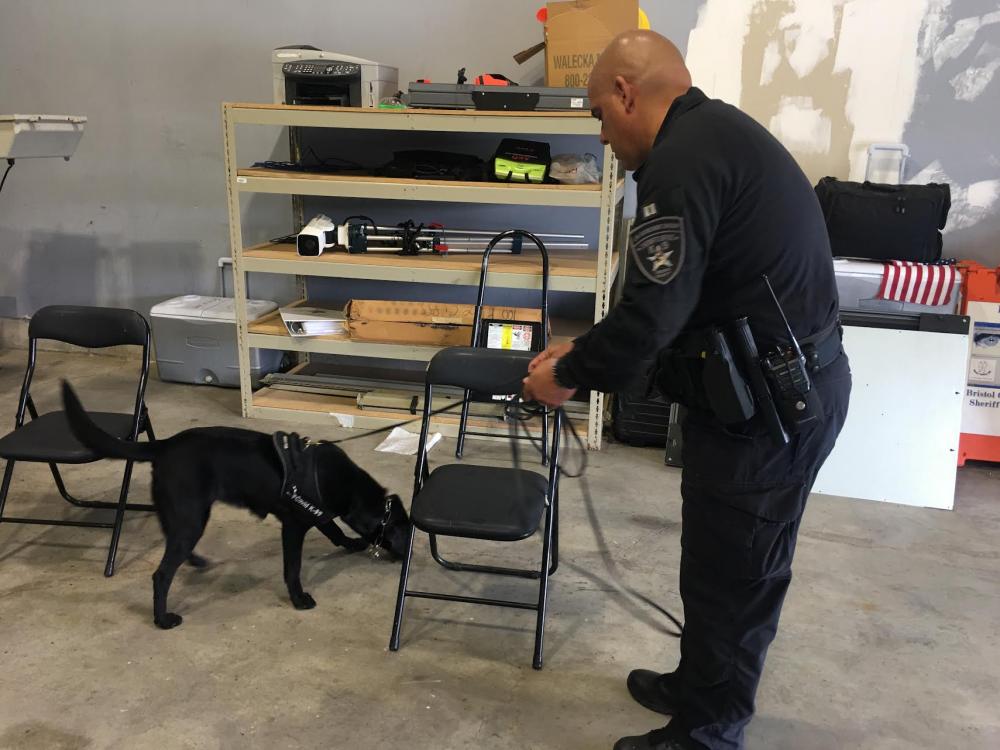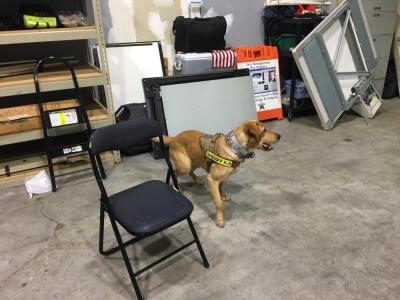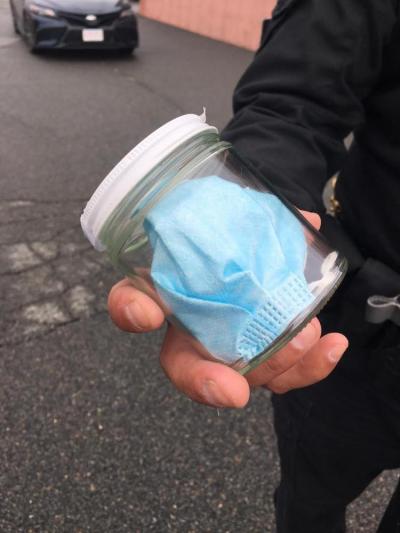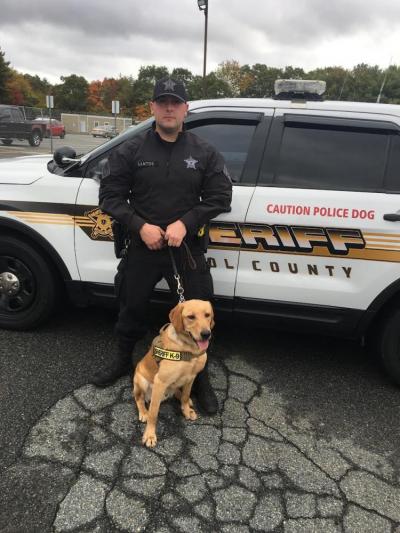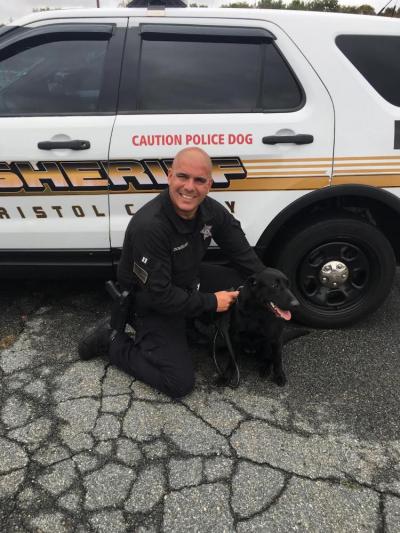Covid dogs detect and serve
Duke and Huntah — that’s Hunter with a New England accent — look and act a lot like family pets.
They love to run and chase balls. They also enjoy interacting with people, freely accepting pats and ear scratches and offering wet kisses.
But they also spend time working. And their work could potentially save lives.
The two dogs are trained to detect Covid-19. Partnering with officers from the Bristol County Sheriff's Office, they visit schools, municipal buildings and airports, among other sites, to sweep areas and detect the presence of the virus.
They are the only Covid canines attached to a law enforcement agency in the country.
Sheriff Thomas Hodgson brought in the dogs, Capt. Paul Douglas said, to provide “another form of public safety.’’
Douglas is the handler of Huntah, a year-old black Lab. Officer Teddy Santos is the officer attached to Duke, an 11-month old Lab mix. The dogs live with the officers during their non-working hours.
Similar to drugs and weapons, Covid-19 has a unique odor which the dogs are trained to detect. The program was developed by Florida International University's International Forensic Research Institute. Covid detection dogs are also used on the Florida International University campus.
They were trained using masks worn by Covid-positive patients. These masks are treated with an ultraviolet system that kills the contagion portion but maintains the odor, making the tool safe for the dogs and the officers.
The dogs make frequent visits to the Freetown-Lakeville school system. Accompanied by their officer handlers, they visit each school about once a week, Superintendent of Schools Richard Medeiros said.
The dogs check out high-traffic areas such as nurse’s offices, gyms, buses, hallways and auditoriums, Medeiros said.
If the dogs detect Covid on hard surfaces such as desks and chairs, staff members know to do a deeper cleaning in that area, he said. After an assembly, should a dog indicate Covid on a specific seat, an effort is made to identify the student and do a confidential follow-up to determine if he or she is having symptoms, Medeiros said.
One of the dogs even alerted on a location meant to offer protection: An air filter in one of the isolation rooms where students experiencing Covid symptoms are taken to keep them away from other students and staff.
Finding Covid on the air filter showed that it needed to be replaced, and staff now update them often, Medeiros said. “This is a good example’’of how dogs have added to the safety of the schools, he said.
Medeiros said he appreciates the work of the officers, human and K9, and that their efforts have been well-received. “I haven’t received one complaint,” he said.
“We want our students to be in school and we want our schools to be safe,” he said. “This is a creative way — a very creative way — to do that.”
The school visits also provide an added benefit, Douglas said. The dogs also can serve as unofficial therapy dogs for students, Douglas said,
If a kid is having a bad day, seeing a dog can brighten his mood, Douglas said.
Bringing a bouncy, friendly dog into a classroom can also help erase fears children might have about dogs and police, Santos said.
“The dog is highly trained, but in some ways it seems like a family dog,’’ he said.
The canines are available to schools, town buildings, non-profits, nursing homes, Councils on Aging, public safety facilities, medical facilities and other organizations across Bristol County. Anyone interested can send a request letter to Sheriff Hodgson, 400 Faunce Corner Road, Dartmouth, Ma 02747.
Public safety organizations seeking an urgent Covid sweep can contact Capt. Douglas at pauldouglas@bcso-ma.org or Supt. Steven Souza at stevensouza@bcso-ma.org.



